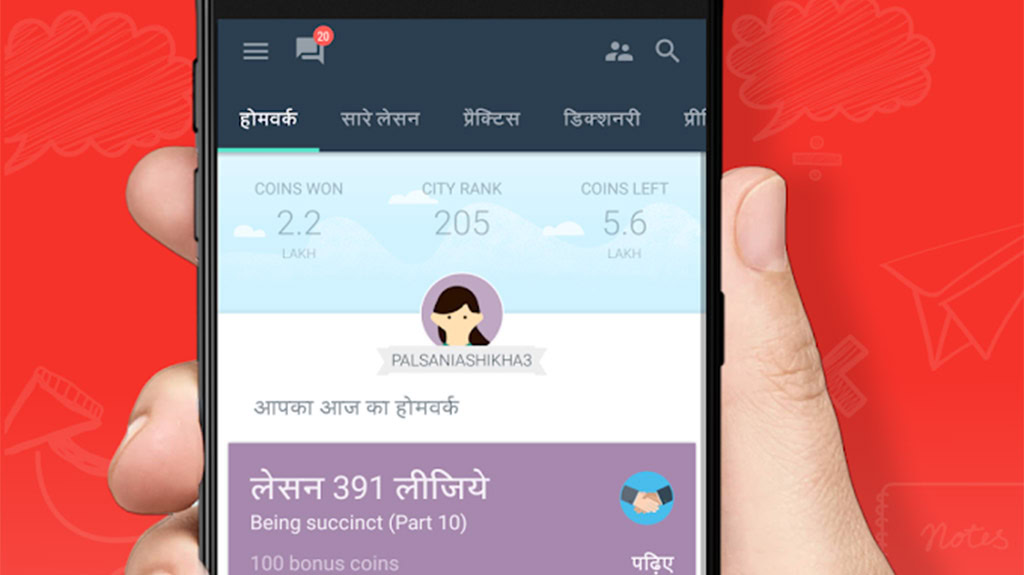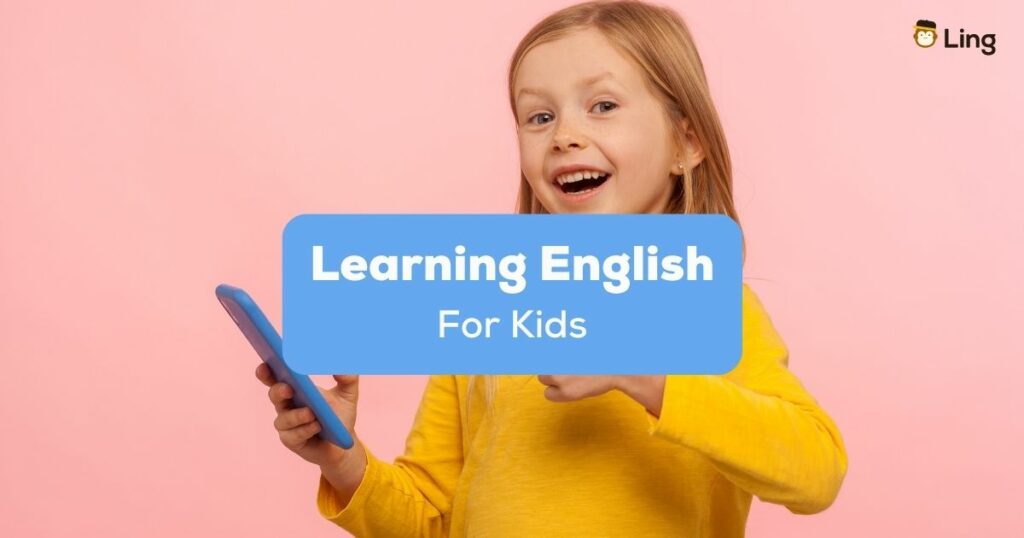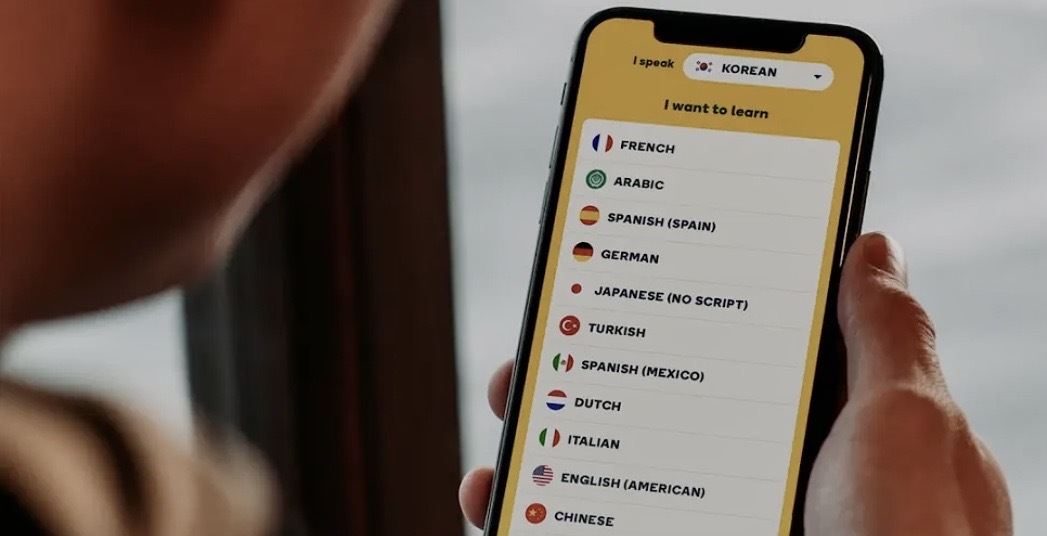Introduction
Embarking on the journey to master the English language can be both exhilarating and challenging. With the advent of technology, a plethora of English learning apps have emerged, each promising to be the best companion in achieving linguistic proficiency.
These digital tools offer a convenient and effective way to enhance English skills, whether you’re visiting a museum, shopping at a supermarket, or preparing for a job interview. The key to success lies in selecting an app that not only aligns with your learning objectives but also provides a comprehensive and engaging educational experience.

As we delve into the world of English learning apps, it’s essential to consider various features that can significantly impact your learning curve. A user-friendly interface, interactive learning tools, personalized learning experiences, and progress tracking are just a few elements that can transform your language learning journey.
In the following sections, we will explore the top English learning apps in the market, compare their offerings, and guide you in choosing the best English learning app tailored to your individual needs and goals.
Features to look for in an English learning app
User-friendly interface
A user-friendly interface is paramount when choosing the best English learning app. An intuitive design ensures that learners can navigate the app with ease, allowing them to focus on their studies rather than struggling with complicated menus or settings.
The ideal app should present its content in a clear, accessible manner, with straightforward instructions that facilitate a seamless learning experience.
For instance, apps like Duolingo are celebrated for their simple, gamified approach, which makes learning feel more like playing a game than attending a traditional class. This ease of use encourages consistent practice, which is crucial for language acquisition.
Moreover, a well-designed interface caters to users of all proficiency levels, from beginners to advanced learners. It should accommodate different learning styles and preferences, whether one prefers visual aids, audio cues, or text-based instructions.
Features such as adjustable difficulty settings and the ability to customize one’s learning path contribute to an app’s user-friendliness.
Apps that offer a clutter-free environment, such as BBC Learning English, with its clean layout and organized content, can significantly enhance the user’s engagement and retention of new language skills.
Interactive learning tools

Interactive learning tools are a cornerstone of effective language acquisition, and the best English learning apps integrate these to keep users engaged and motivated. These tools often include games, quizzes, and flashcards, which make the learning process more dynamic and enjoyable.
For example, HelloEnglish offers interactive modules that allow users to practice lessons through games, enhancing their reading, writing, and listening skills in a playful manner.
Similarly, FluentU leverages real-world videos to create immersive learning experiences, enabling learners to understand English as it is naturally spoken and to develop their conversational abilities.
Another aspect of interactivity is the ability to receive immediate feedback on one’s progress. Apps like ELSA (English Language Speech Assistant) specialize in pronunciation, providing instant corrective feedback to help users refine their spoken English.
This real-time response ensures that learners can quickly identify and work on their weaknesses, leading to more effective language development. The inclusion of interactive learning tools not only makes studying more engaging but also significantly improves the retention of new vocabulary and grammar, making them indispensable features in the quest for English mastery.
Personalized learning experience
Personalization is key to an effective English learning journey, and the best English learning apps offer tailored experiences that adapt to individual user needs.
A personalized learning experience means the app recognizes your proficiency level, learning pace, and personal goals, then adjusts its curriculum accordingly. For instance, Beelinguapp focuses on improving reading and listening comprehension through stories, catering to those who learn best through narrative contexts.
Apps like Busuu and Mondly, on the other hand, allow users to focus on specific areas of difficulty, such as pronunciation or industry-specific vocabulary, providing a more targeted approach to language learning.
Moreover, some apps go the extra mile by offering features like progress tracking and customized review sessions, which help learners consolidate what they’ve learned. The ability to track one’s progress is not only motivating but also provides valuable insights into which areas require more attention.
While apps like Duolingo offer a structured path with skill points to gauge advancement, others like Hello English provide the option to connect with native speakers for personalized practice, although this may come with additional costs.
The ultimate goal of a personalized learning experience is to create a tailored educational journey that aligns with the learner’s unique needs, making the process of acquiring English both efficient and enjoyable.
Progress tracking

Progress tracking is an essential feature in the best English learning apps, as it allows learners to monitor their development and stay motivated. Effective apps provide detailed progress reports, which highlight strengths and areas for improvement.
For example, LearnEnglish Grammar, backed by the British Council, offers over 1,000 questions across various levels, and its progress reports help learners track their understanding of complex grammar rules.
This feature is particularly beneficial for those who value structured learning and wish to see tangible evidence of their advancement in mastering the English language.
While some users may find gamification elements like those in Duolingo confusing, the skill points and lesson completions serve as a clear indicator of progress, making the learning process rewarding. However, it’s important to choose an app that offers a reliable and user-friendly progress tracking system.
Apps with buggy or slow functionality can hinder the learning experience, so selecting one with high user reviews and ratings for its tracking features, such as the highly-rated LearnEnglish Grammar app, is crucial for consistent and effective language learning.
Top English learning apps in the market
Duolingo
As we delve into the top English learning apps in the market, Duolingo stands out for its gamified approach to language acquisition.
With an average rating of 4.7 out of 5 stars and availability across multiple platforms, Duolingo has become a go-to resource for learners seeking daily language practice and vocabulary enhancement. The app’s design encourages consistent study habits through engaging 5-minute games, which involve translating phrases and practicing spoken English.
Its persuasive reminders to maintain your learning streak make it an excellent tool for building a regular learning routine, essential for steady progress in language skills.
Despite its popularity, Duolingo is best suited for those at the beginning or intermediate stages of their English learning journey. While it provides free access to all lessons, advanced learners may find the focus on memorizing phrases somewhat limiting for their needs.
For a more comprehensive understanding of the English language’s structure, users might consider complementing Duolingo with other learning methods or apps that offer a broader curriculum.
Nonetheless, Duolingo’s user-friendly interface and gamified learning experience make it a compelling choice for many learners worldwide.
Rosetta Stone
Moving on to Rosetta Stone, this app is renowned for its immersive language learning experience, making it one of the best English learning apps for those looking to dive headfirst into the language.
With an impressive average rating of 4.8 out of 5 stars, Rosetta Stone has been a leader in the language-learning space for over 25 years. The app’s unique methodology eschews translations, instead plunging learners into English with intuitive picture-word associations.
This approach is designed to mimic the natural language acquisition process, which can be particularly effective for improving pronunciation and accent through its advanced speech recognition technology.
While Rosetta Stone requires a higher level of commitment and investment, with pricing options ranging from $35.97 for three months to $299 for lifetime access, it offers a structured path to language proficiency. Subscribers can also benefit from live video chats with language tutors, adding a valuable interactive component to the learning experience.
However, it’s worth noting that there is no free version of the app, except for a 3-day trial, but all subscriptions come with a 30-day money-back guarantee. For those serious about achieving fluency and willing to commit both time and resources, Rosetta Stone could be the ideal solution.
Babbel
Following Rosetta Stone, Babbel emerges as a formidable contender in the realm of English learning apps, particularly for those aiming to develop conversational skills and vocabulary. Babbel’s methodology focuses on real-world topics, which facilitates learners in engaging in meaningful conversations early on.
The app’s lessons are crafted to enhance language comprehension beyond mere word memorization, ensuring that users can understand and use the language effectively. With a variety of original games, podcasts, and stories, Babbel supports long-term memory retention of vocabulary, making it a robust tool for structured learning.
Although Babbel is highly regarded for its content, it does not include live speaking practice, which may be a drawback for some learners. However, for an additional fee, users can access Babbel Live, offering classes from Level A1 to C1, which can help bridge this gap.
The app is particularly beneficial for students who require extra assistance with grammar. Babbel’s balanced approach between fun learning and serious coursework makes it a strong candidate for those seeking a comprehensive learning experience.
Memrise
Next in line is Memrise, an app that stands out for its innovative use of spaced repetition and humor to make learning English vocabulary not just effective, but also enjoyable. Memrise’s approach is user-generated, allowing learners to engage with courses that are designed by fellow users, fostering a community-driven learning environment.
This unique feature adds a personal touch to the learning process, as it reflects real-life language usage and nuances. The app’s free version is ad-supported, but for those seeking a more immersive experience, Memrise offers a premium subscription at $89.99 per year or $199.99 for lifetime access.
Memrise’s premium features include over 30,000 audio and video lessons, which are invaluable for learners looking to familiarize themselves with the pronunciation and usage of English words and phrases by native speakers. Additionally, the app’s speech recognition tool aids in refining pronunciation, ensuring that learners can speak with confidence.
With an average rating of 4.8 out of 5 stars, Memrise is accessible on web, iOS, and Android platforms, making it a versatile and highly rated option for those dedicated to expanding their English vocabulary on-the-go.
Busuu
Following the innovative approach of Memrise, Busuu offers a practical solution for learners focusing on sentence construction and pronunciation. As a flashcard-based app, Busuu provides a 10-minute lesson format that is ideal for busy individuals seeking quick and effective language practice.
Its speech recognition tool is particularly useful for comparing your spoken English with native phrases, enhancing pronunciation skills. Premium members benefit from advanced grammar lessons and personalized content aligned with their learning objectives, including the ability to create a custom study plan and receive study reminders.
Busuu’s community forum is a standout feature, offering language exchange opportunities and feedback on speaking and writing from fellow learners. This interactive component adds a social dimension to the learning experience, which can be invaluable for reinforcing language skills.
Despite its strengths, Busuu may not be the best fit for those seeking to learn vocabulary in context or for advanced learners. However, with offline learning capabilities and comprehension checks to monitor progress, Busuu remains a strong contender among the best English learning apps.
Rocket Languages
Complementing the user-generated content of Memrise and the structured lessons of Busuu, Rocket Languages enters the arena as a comprehensive language learning system. It offers a multi-faceted approach to mastering English, combining audio lessons, interactive exercises, and cultural insights.
Rocket English, the app’s dedicated English course, is designed to cater to various learning levels, from beginner to advanced. The program emphasizes conversational learning, where users can practice speaking and listening skills through real-life situations, supported by voice recognition technology for accurate pronunciation feedback.
One of Rocket Languages’ most notable features is its emphasis on understanding the cultural context of the language, which is crucial for learners aiming to use English in diverse settings.
The app also includes a progress tracking system that allows learners to see their improvements over time, adding to the motivation to continue their language journey.
While Rocket Languages may come with a higher price tag, with lifetime access costing $149.95, the depth and breadth of its content make it a valuable investment for serious learners.
Elsa
Amidst the competitive landscape of English learning apps, ELSA (English Language Speech Assistant) distinguishes itself with a focus on pronunciation and speaking fluency.
Utilizing advanced AI technology, ELSA offers over 7,100 activities designed to help users speak English with the confidence of a native speaker. The app’s personalized lessons cater to a range of learners, from those transitioning from Spanish or French to English, to professionals seeking to refine their office communication skills.
ELSA’s speech analyzer is a key feature, providing visual guidance and immediate feedback to perfect pronunciation, a boon for anyone aiming to master an American accent.
With an average rating of 4.7 out of 5 stars, ELSA’s effectiveness is well-documented by its users. The app’s structured curriculum spans 192 topics, ensuring comprehensive coverage from travel lingo to job interview preparation. While the free version offers a solid starting point, the Pro membership—priced at $129.99/year—unlocks a richer, more intensive learning experience.
ELSA’s commitment to continuous improvement is evident in its regular technical updates and performance enhancements, making it a top choice for learners seeking the best English learning app. For further details on ELSA’s offerings, visit Apple’s App Store.
Comparison of the top English learning apps
Cost
When comparing the best English learning apps, cost is a significant factor for many users. Apps like Duolingo offer free access to all lessons, with an optional premium subscription at $12.99/month for an ad-free experience and additional features.
On the other hand, Rosetta Stone requires a more substantial investment, with options ranging from $35.97 for three months to $299 for lifetime access to all languages. It’s important to consider both your budget and your learning objectives when selecting an app.
For instance, Preply starts at $5/hour for private lessons, providing a personalized learning experience, while ELSA’s Pro membership at $129.99/year focuses on pronunciation and speaking fluency.
Moreover, many of these apps offer free trials, allowing users to test the waters before committing financially. Duolingo provides a 2-week free trial, while Rosetta Stone extends a 3-day trial period. It’s advisable to take advantage of these trials to gauge the app’s suitability for your learning style and goals.
Content and Curriculum
The content and curriculum of an English learning app are pivotal in ensuring that learners acquire a well-rounded grasp of the language.
Apps like LingoDeer and Babbel are lauded for their structured curriculums, which guide users from beginner to intermediate levels, and for structured learning, respectively. LingoDeer emphasizes learning new words in context, aiding in the understanding of grammar, while Babbel’s curriculum is crafted by linguistic experts to systematically build upon each lesson.
Conversely, Duolingo’s approach to content, with its gamified learning experience, is designed to keep users engaged through daily practice and vocabulary building, though it mainly focuses on memorizing phrases and may not cater to advanced learners seeking in-depth language mastery.
For those interested in UK English, BBC Learning English stands out with its focus on everyday situations and its use of engaging news stories to teach vocabulary and conversational phrases. However, it lacks a standard curriculum, which might be a drawback for learners seeking a more traditional learning path.
It’s essential to align the app’s content with your learning objectives, whether you’re looking to improve your grammar with LearnEnglish Grammar or aiming for accent perfection with Rosetta Stone.
Each app’s curriculum is designed with specific learning outcomes in mind, and a discerning learner should consider these when choosing the best English learning app to invest their time in.
User reviews and ratings
User feedback is a crucial indicator of an app’s effectiveness and popularity. Duolingo, for instance, boasts an average rating of 4.7/5 stars, reflecting its widespread appeal and user satisfaction, particularly for its gamified learning approach.
ELSA, with its focus on pronunciation, also receives high marks from users for its instant feedback on speech, although it requires a higher level of commitment and investment.
On the other hand, apps like Beelinguapp, with a 4.6/5 star rating, are celebrated for their unique approach to learning through stories, catering to those who prefer a narrative context for language acquisition.
It’s important to sift through user reviews to understand the strengths and weaknesses of each app. While some users may prioritize a seamless, ad-free experience, others might value comprehensive content or the ability to track progress.
For example, Hello English is noted for its extensive vocabulary lessons, but some users find the ads disruptive. By examining user reviews and ratings, learners can get a sense of which app aligns best with their preferences and learning needs.
Choosing the best English learning app for you

Identify your learning goals
Before diving into the vast sea of English learning apps, it’s crucial to pinpoint your specific learning goals. Are you aiming to enhance your pronunciation, expand your vocabulary for a particular field, or master the intricacies of grammar?
For instance, if pronunciation is your Achilles’ heel, an app like ELSA, which is tailored for speech improvement, could be your best bet. On the other hand, if you’re seeking to refine your grammar skills, LearnEnglish Grammar might be the ideal choice.
By setting clear objectives, you can narrow down the options and select an app like Busuu or Mondly that focuses on your areas of improvement, ensuring a more targeted and efficient learning experience.
Understanding your goals also helps in choosing an app with content that resonates with your interests or career needs. If you’re looking to immerse yourself in UK English, BBC Learning English could provide that cultural edge with its authentic materials.
Meanwhile, professionals seeking industry-specific vocabulary might find specialized courses on platforms like Udemy to be more beneficial. Remember, the best English learning app for you is one that not only addresses your weaknesses but also aligns with your aspirations and learning style.
For further guidance on setting and achieving your English learning goals, resources are available on Oxford International English.
Consider your learning style
After identifying your learning goals, it’s essential to reflect on your learning style to find the best English learning app that suits you. Do you thrive on visual aids, interactive quizzes, and games, or do you prefer structured lessons and repetitive drills?
For visual learners, apps like Memrise, with its rich use of mnemonics and imagery, can make vocabulary stick. In contrast, auditory learners might benefit from apps like Rosetta Stone, which emphasizes listening and speaking through its immersive method.
It’s about matching the app’s teaching style with your learning preferences to create an engaging and effective study routine.
Moreover, consider whether you learn better through self-paced, independent study or if you require structured guidance and deadlines. Apps like Duolingo allow for a flexible learning schedule, perfect for those who want to learn at their own pace.
Conversely, if you need more structured learning, an app like Rocket Languages, with its lesson plans and milestones, might be more up your alley. By taking into account your learning style, you can maximize the efficacy of your chosen app and make your journey to English proficiency as smooth and enjoyable as possible.
Try out free trials or demos
Once you’ve identified your learning goals and considered your learning style, the next step is to test the waters with free trials or demos. Many of the top English learning apps offer a sneak peek into their features and content, allowing you to experience their interface and teaching methods firsthand before committing financially.
For example, Rosetta Stone provides a 3-day free trial, giving you the opportunity to assess its immersive language learning approach. Similarly, Duolingo offers a 2-week free trial, perfect for exploring its gamified daily language practice. Taking advantage of these trials is a smart move to ensure the app you choose is the right fit for your English learning journey.
It’s important to note that while some apps, like LingoDeer, allow free access to the first unit, others may require a subscription post-trial for full access.
Be mindful of the terms and conditions to avoid unexpected charges. Additionally, user reviews and ratings can be a valuable resource when evaluating the effectiveness of an app during the trial period.
Apps like Beelinguapp, with high user ratings, indicate a positive learning experience, which can be a deciding factor in your selection process.
Conclusion
In the quest to master the English language, the best English learning app for you is one that aligns with your individual goals, learning style, and preferences. By leveraging the strengths of various apps, you can create a customized and comprehensive learning experience.
Remember, the effectiveness of an app is not solely in its content but also in how it engages you in the learning process. Whether it’s through interactive exercises, personalized feedback, or real-world conversation practice, the right app can transform your English proficiency journey from a chore into an adventure.
Ultimately, the key to success lies in consistent practice and a willingness to explore different learning tools. With the plethora of options available, from the gamified lessons of Duolingo to the conversational focus of Tandem, there’s an app out there that can cater to your unique learning needs.
Embrace the trial periods, heed the feedback from user reviews, and commit to an app that resonates with your learning style. Your dedication, combined with the right technological aid, will undoubtedly pave the way to English fluency.
Sources:
- https://www.oxfordinternationalenglish.com/what-are-the-best-apps-for-learning-english/
- https://apps.apple.com/us/app/elsa-english-language-app/id1083804886
- https://preply.com/en/blog/best-apps-to-learn-english/
- https://www.quora.com/What-are-the-best-English-learning-apps
- https://apps.apple.com/us/app/letmespeak-learn-english/id1478889848
FAQ
-
Which one is the best app for learning English?
BEST APPS TO LEARN ENGLISH: GET FLUENT WITH THESE 17 MUST-HAVE APPS (2023)
Preply: Best for personalized learning.
Rosetta Stone: Best for immersion.
Duolingo: Best for gamified learning.
LingoDeer: Best for beginners and intermediate learners.
Mondly: Best for speaking.
Memrise: Best for spaced repetition. -
Which is better Babbel or Duolingo?
Approach to learning The biggest difference between Babbel and Duolingo is the approach to language learning. Babbel is a better option if you want traditional language instructions through modules and lessons. By contrast, Duolingo works great if you need a playful, gamified experience.
-
What is the #1 best language learning app?
Rosetta Stone.
Pimsleur.
Drops.
Mondly.
Linguist.
Babbel.
Memrise.
Duolingo. -
Is Duolingo worth the time?
All things considered, if you’re an enthusiastic, devoted language learner like me, Super Duolingo is well worth the price. If you don’t mind watching ads and aren’t obsessed with your streak, however, continuing to use the free version is probably just fine.
Originally posted 2023-12-03 09:34:53.











